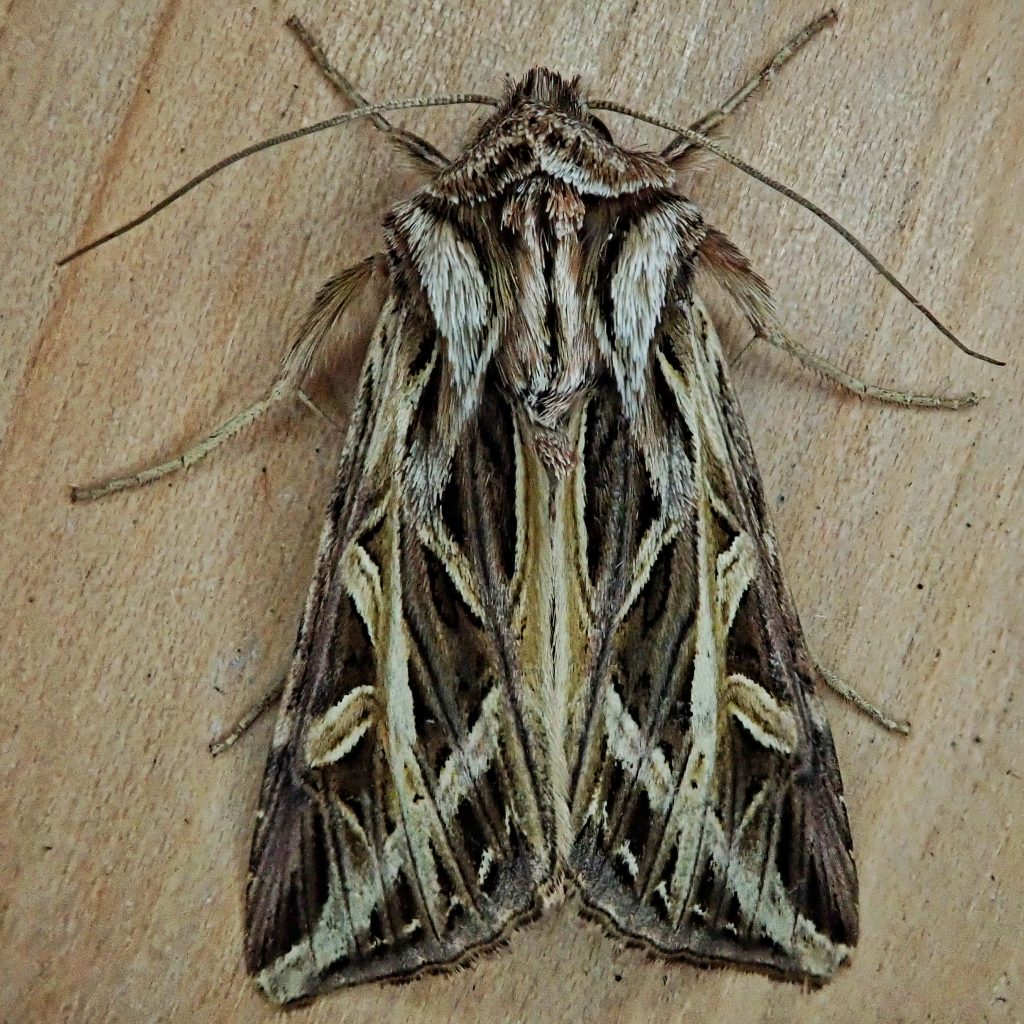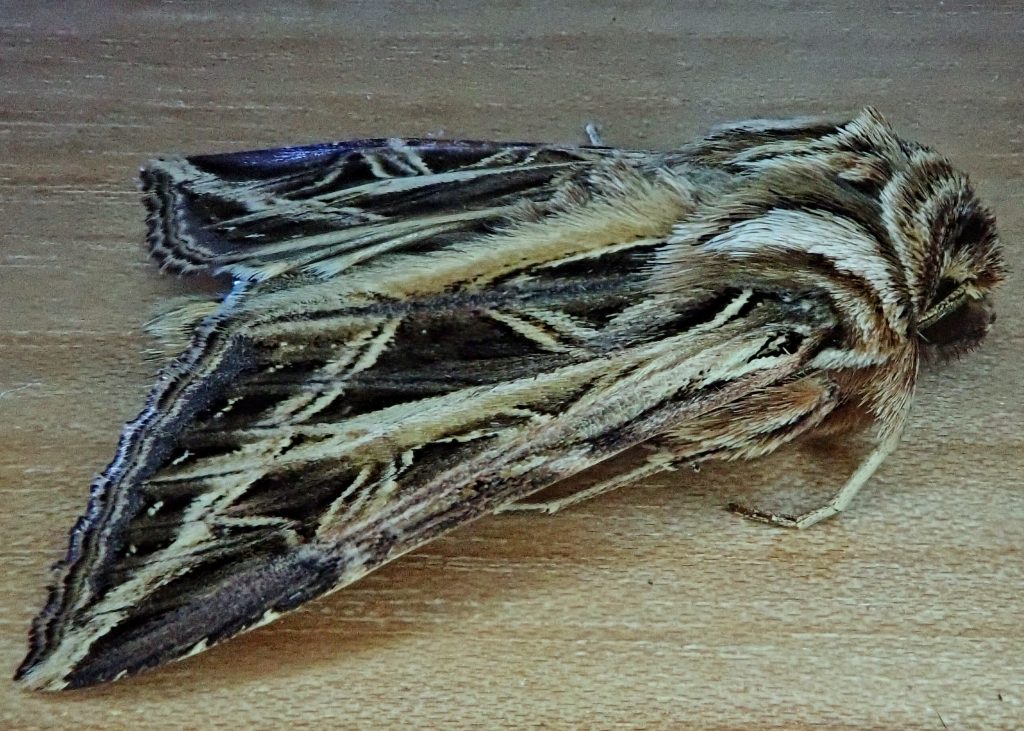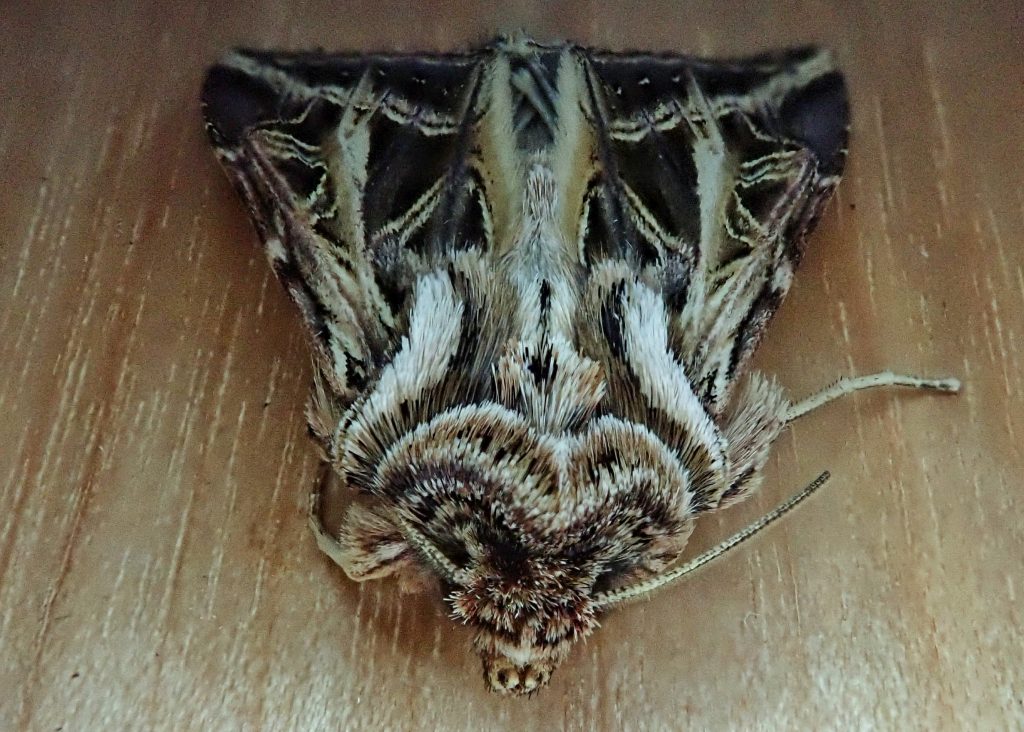
First off I need to say that I really don’t like that prosaic and somewhat pejorative common name. I do realize they can be a pest species, and many gardeners loathe cutworms of all sorts. However the moth itself is very striking, and I would even say beautiful, and I would like to propose Grass Tapestry Moth as the common name for the adults of this species.
The Grass Tapestry Moth😉 is medium sized (FW length 18-22mm), with a forewing pattern suggesting a, you guessed it, tapestry of grass. Effective camouflage, that! The larvae feed on a wide variety of coarse, tall grasses, particularly attracted to Dactylis glomerata (Orchard Grass) and Elymus spp.(Rye Grasses), making it a serious agricultural pest in the grass seed fields of western Oregon. During outbreaks they are also known to feed on alfalfa and peppermint, as well as other vegetation.
Dargida procinctus is common throughout the PNW wherever grasses are present, and is AB sent only from alpine areas and the most arid interior locations. They fly fairly continuously from April to November.

https://bugguide.net/node/view/15575
Size- FW length 18-22mm
Habitat- Open, grassy areas
Range- Region wide, excluding alpine and very arid locations
Eats- Larvae feed on grasses, although during outbreaks they will feed on other herbaceous vegetation
Flight Season- April to November

Dan, I also just read they feed on reed canary grass – which is a non-native species that crowds out native wetland vegetation, so more in support of them rising out of “pest” status. Good job! I vote for using your new name as well. I like “Tapestry” much better. There were some at my porch light this summer and they are indeed remarkably beautiful.
Thanks, Cynthia!
Agreed! I farm 15 acres organically in Kent, WA and have logged 140 moth species at my trap, four of which are known “cutworms”. Yet I lose very few plants to these caterpillars. Cabbage White butterflies do much more damage. Rather, I have an abundant diversity of songbirds, who I’m sure enjoy the caterpillars! I second your renaming to Grass Tapestry moth!
Glad to see a little love for Dargida procinctus! Thanks Shelley!